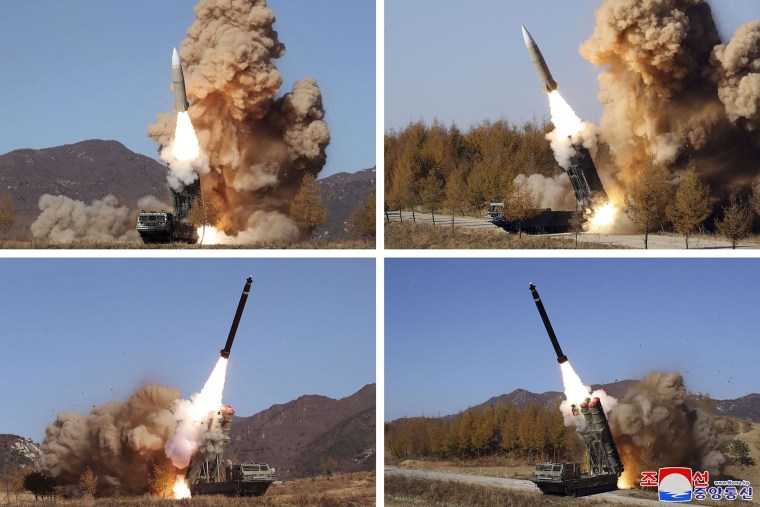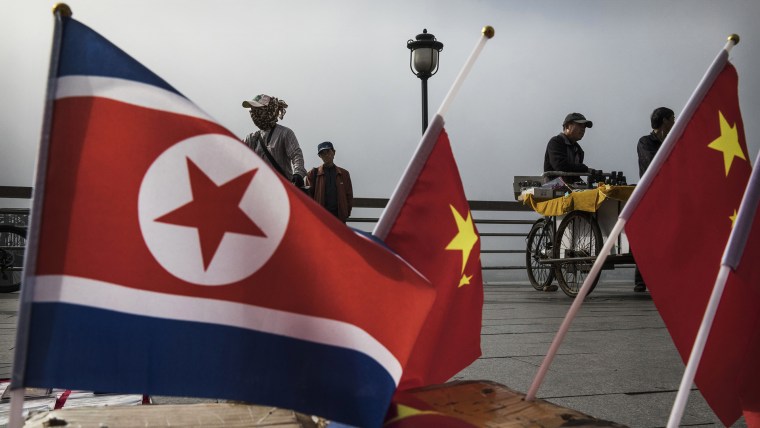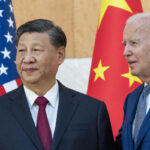BALI, Indonesia — President Joe Biden said Monday that he told his Chinese counterpart that Beijing has “an obligation” to dissuade its neighbor North Korea from test-firing nuclear missiles and that the U.S. would take unspecified “defensive” action should the provocations continue.
At a news conference after a three-hour meeting with Chinese President Xi Jinping, Biden did not specify how the U.S. might respond to an expected nuclear test by North Korean leader Kim Jong Un, which would be the country’s first since 2017 and its seventh overall. He added that any actions the U.S. takes in reprisal “would not be directed against China but would send a clear message to North Korea: We are going to defend our allies as well as American soil and American capacity.”
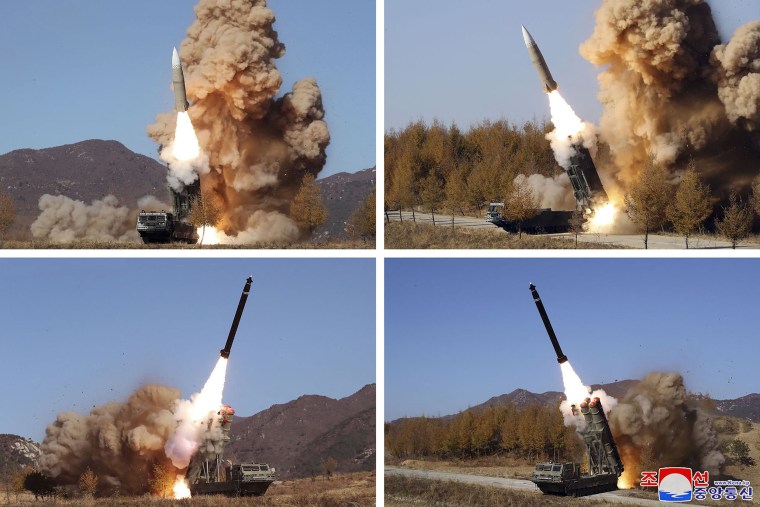
Biden also said he does not believe rising tensions with China have devolved into a new “cold war.”
“We’re going to compete vigorously, but I’m not looking for conflict” with China, he said. “I’m looking to manage this competition responsibly. And I want to make sure that every country abides by the international rules of the road.”
Biden’s first face-to-face meeting with Xi since he took office was months in the making. It took place during a summit of the Group of 20, whose members account for about 80% of the global economy.
A readout of the meeting provided by the White House indicated Biden and Xi sought to find common ground. They agreed that the top U.S. diplomat, Secretary of State Antony Blinken, will travel to China to build on the discussion.
Biden told Xi that he wants to work collaboratively with China to improve public health, curb world hunger and limit global warming. Senior officials on both sides will communicate with one another to make progress on those and other issues, the U.S. statement said.
Biden and Xi went into the meeting at a volatile moment in the world’s most consequential bilateral relationship. North Korea has been stepping up missile tests — firing nearly two dozen in a single day this month — and the U.S. believes China, the North’s largest trading partner, should use its clout to pressure Kim to back off.
“We know that Beijing has influence in Pyongyang,” the North Korean capital, a senior administration official said. “Beijing probably has more influence in Pyongyang than in any other capital.”
In the meantime, Chinese military exercises near Taiwan have raised concerns about a possible invasion of the self-governing island, which China claims as part of its territory. China was incensed over House Speaker Nancy Pelosi’s visit to Taiwan in August, touching off a prolonged round of drills.
“I don’t think there’s any imminent attempt on the part of China to invade Taiwan,” Biden said. “We want to see cross-strait issues peacefully resolved so it never has to come to that. I’m convinced that he [Xi Jinping] understood exactly what I’m saying. I understood what he was saying.”
Biden’s dealings with Xi require a deft diplomatic touch. He needs to be both tough and conciliatory as he tries to deter China from menacing Taiwan and bullying U.S. allies in the region while gaining Xi’s cooperation in curbing North Korea’s nuclear program and limiting the effects of climate change.
Making the task even trickier, Americans largely hold a dim view of China, meaning there is little space for him to placate Beijing. More than three-quarters of U.S. adults have viewed China in an unfavorable light over the last two years, according to the Pew Research Center.
Biden and Xi greeted each other cordially as the talks began. They met at about 5:40 p.m. local time (4:40 a.m. ET) in front of a row of U.S. and Chinese flags. Biden walked toward Xi with his right hand outstretched, and as they shook, he clasped Xi’s hand with his left.
“Good to see you,” said Biden, who met with Xi many times when both were vice presidents of their countries. They then turned and faced the cameras for a photo before they walked into the meeting room and took their seats at long, rectangular tables that faced each other across about a 12-foot gap. Each leader was flanked by nine aides. On China’s side, Xi’s deputies wore masks with an imprint of the country’s red flag.
The mood was tense. Xi pointed to the pronounced differences between the world’s two greatest powers in brief opening comments.
He told Biden that the current state of U.S.-China relations is not in the fundamental interests of the two countries and that “it is not what the international community expects from us, either,” the Chinese Foreign Ministry said in a statement.
“As leaders of two major countries, we need to play the leadership role, set the right course for the China-U.S. relationship and put it on an upward trajectory,” he added.
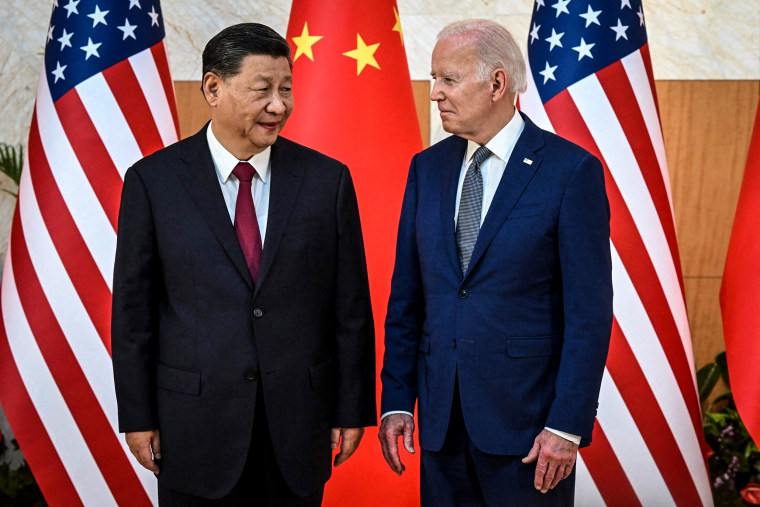
As reporters were ushered out of the room, a TV producer called out asking whether Biden would raise the issue of human rights in China. A man from the Chinese side pulled the producer backward, causing her to lose her balance. As she was pushed toward the door, White House staff members intervened and said to leave her alone, according to a pool report of the incident.
Arranging the meeting took painstaking negotiation that a senior administration official hinted grew contentious at times. In their most recent phone call in July, Biden and Xi agreed that they would instruct their aides to explore an in-person meeting. The two had spoken virtually or by phone five times since Biden was sworn in.
“Both sides had an interest in having this meeting happen,” the official said.
A point each made in his opening remarks was that face-to-face diplomacy is imperative with so much at stake.
“As you know, I’m committed to keeping the lines of communications open between you and me personally but our governments across the board, because our two countries are — have so much that we have an opportunity to deal with,” Biden said in his statement.

